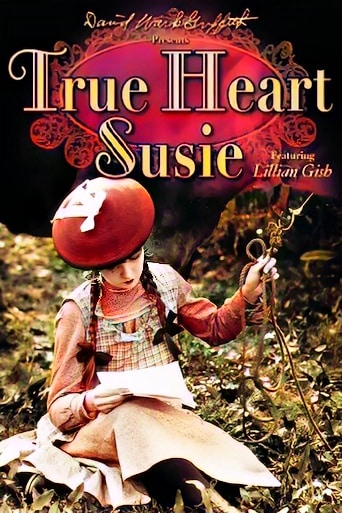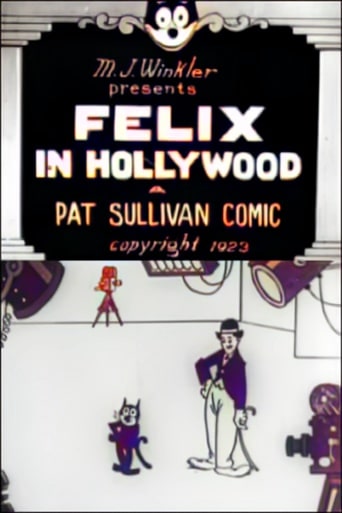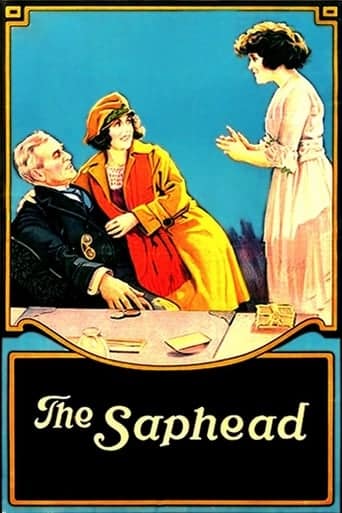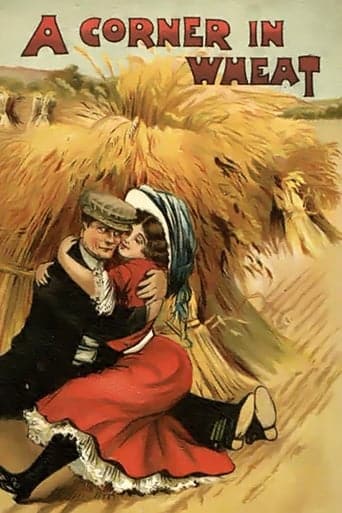True Heart Susie (1919)

 “True Heart Susie” (1919), directed by the legendary D.W. Griffith and starring Lillian Gish, Robert Harron, George Fawcett, and Clarine Seymour, is a silent film that explores themes of unrequited love, sacrifice, and the complexities of social mobility.
“True Heart Susie” (1919), directed by the legendary D.W. Griffith and starring Lillian Gish, Robert Harron, George Fawcett, and Clarine Seymour, is a silent film that explores themes of unrequited love, sacrifice, and the complexities of social mobility.
In this classic movie, the narrative revolves around Susie, a plain and selfless young country girl, and her unspoken affection for a neighbor, William.
The heart of the film lies in Susie’s deep and secret love for William, played by Robert Harron. Susie’s affection is pure, unassuming, and selfless, and she silently supports William’s ambitions, sacrificing her own happiness in the process. Lillian Gish’s nuanced portrayal of Susie brings depth and authenticity to the character, capturing the essence of unrequited love and unacknowledged sacrifice.
As the story unfolds, we witness Susie’s unwavering belief in William’s potential. Despite their differences in social standing and appearance, Susie sees something in William that transcends superficial judgments. George Fawcett’s portrayal of Susie’s father adds a layer of complexity to the narrative, introducing the theme of social mobility and the challenges faced by those striving for success in a stratified society.
Susie’s sacrifices for William are both poignant and heart-wrenching. She invests her time, energy, and even her financial resources to support William’s education and aspirations. The film delicately captures the selflessness of Susie’s character, painting her as a beacon of unconditional love and support.
The passage of time is a crucial element in “True Heart Susie,” marking the evolution of the characters and their relationships. As William rises to success and sophistication, Susie remains in the background, quietly observing his journey. The film skillfully portrays the bittersweet reality that Susie’s efforts have elevated William to a level where he becomes inaccessible to her, both socially and emotionally.
The theme of social mobility is a recurring motif in the narrative. William’s transformation from a small-town boy to a successful and sophisticated man highlights the societal barriers that can emerge as individuals strive for upward mobility. The film subtly comments on the sacrifices and unintended consequences that can accompany the pursuit of success.
Clarinet Seymour’s character, Bettina, adds a layer of romantic tension to the story. As William becomes more successful, he is drawn to the sophisticated allure of Bettina, leaving Susie on the sidelines. The introduction of Bettina further emphasizes the theme of societal expectations and the allure of a more glamorous life.
D.W. Griffith’s direction is evident in the film’s visual storytelling and emotional resonance. The use of close-ups and expressive cinematography allows the audience to connect with the characters on a deep emotional level, despite the absence of spoken dialogue. Griffith’s ability to convey complex emotions through visuals and subtle gestures is a testament to his mastery of the silent film medium.
“True Heart Susie” also explores the complexities of gender roles and societal expectations in the early 20th century. Susie’s selfless devotion to William and her sacrifices for his success reflect the societal norms of the time, where women were often relegated to supporting roles behind the scenes. The film subtly critiques these gender dynamics while simultaneously portraying Susie’s strength and resilience.
The climax of the film, where Susie realizes the extent of her sacrifices and the emotional distance that has grown between her and William, is a poignant and emotionally charged moment. Lillian Gish’s performance in this scene is particularly powerful, conveying the heartbreak and acceptance that come with unrequited love.
“True Heart Susie” stands as a classic silent film that transcends its era, exploring themes that remain relevant today. The film’s exploration of love, sacrifice, and societal expectations resonates with audiences across generations. Lillian Gish’s nuanced performance, coupled with D.W. Griffith’s directorial finesse, elevates “True Heart Susie” to a timeless cinematic gem.
In conclusion, “True Heart Susie” is a testament to the enduring power of silent cinema to convey complex emotions and universal themes. The film’s exploration of unrequited love, sacrifice, and the societal barriers to success creates a narrative that is both timeless and thought-provoking. Lillian Gish’s portrayal of Susie, coupled with the directorial mastery of D.W. Griffith, cements “True Heart Susie” as a classic that continues to captivate and resonate with audiences, inviting them to reflect on the complexities of the human heart and the enduring power of true and selfless love.
Release Date: June 1st, 1919
Main Cast Members
Lillian Gish (Susie May Trueheart)
Robert Harron (William Jenkins)
George Fawcett (The Stranger)
Clarine Seymour (Bettina Hopkins)
Kate Bruce (Bettina’s Aunt)
Carol Dempster (Bettina’s chum)
Raymond Cannon (Sporty Malone)
Loading live eBay listings...




